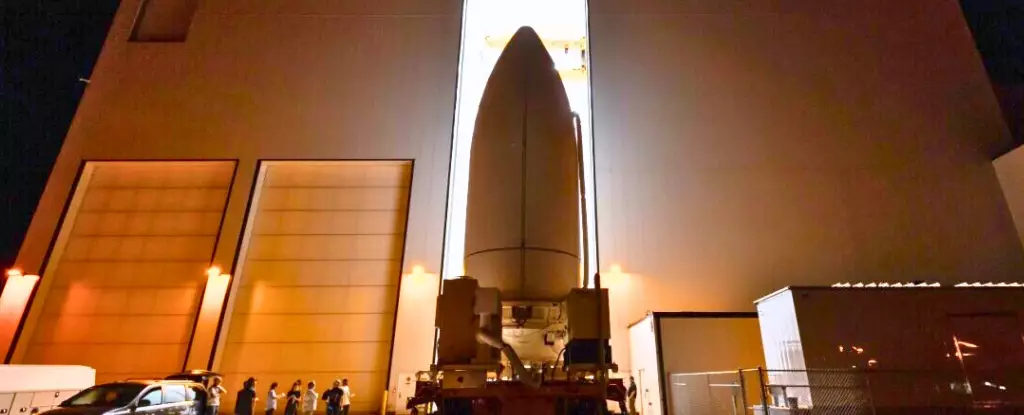As the countdown begins for Amazon’s much-anticipated Project Kuiper satellite launch, the technological landscape for global internet connectivity inches toward an exciting transformation. Scheduled for April 9, the mission, aptly named ‘Kuiper Atlas 1’, is set to deploy 27 satellites aboard an Atlas V rocket from Cape Canaveral, Florida. This pivotal moment signifies not just another entry into the satellite internet arena but a serious challenge to established players like Elon Musk’s Starlink.
Project Kuiper promises to introduce a suite of advanced satellites that aim to bridge the connectivity gap faced by underserved communities worldwide. Unlike earlier prototypes launched by Amazon, the upcoming satellites herald a new chapter in their quest for high-speed, low-latency internet that could reach remote areas, peril-stricken regions, and war zones. With this endeavor, Amazon is betting on its capability to deliver reliable connectivity to those who have historically been left behind in the digital age.
A Competitive Landscape
The rivalry in the satellite internet frontier is intensifying. Amazon’s entry through Project Kuiper reflects a broader competition that now includes monumental players such as SpaceX, which has dominated the market since launching its first satellites in 2019. Musk’s Starlink service, with over 6,750 operational satellites, has established itself as the gold standard in providing internet services globally.
However, Amazon’s substantial investment and technological innovations position it to carve out its niche. With plans to eventually deploy a constellation of over 3,200 satellites in low Earth orbit, Amazon is not merely seeking to compete; it aims to revolutionize the connectivity landscape by offering services where traditional infrastructures have struggled to thrive. The implications here are profound — higher quality of life for those in developing regions, improved education access, and a new lifeline during disasters.
The Broader Context of Satellite Internet Deployment
Project Kuiper’s potential impact extends beyond just Amazon and Musk. Countries around the globe are ramping up their satellite internet ambitions in response to burgeoning demand. China’s GuoWang constellation aims for a staggering 13,000 satellites, while Canada’s Telesat and Germany’s Rivada are making notable advances with their respective plans for additional satellites. The European Union’s Iris project and the U.S. military’s ambitious satellite deployment initiatives further illustrate the urgency of this digital race.
This international competition reflects an understanding that connectivity is no longer a luxury but a necessity. For countries and companies alike, being at the forefront of satellite deployment signifies not just technological prowess but also strategic advantages in global communication. The urgency to provide comprehensive connectivity options has never been more relevant, especially as societies rely increasingly on digital infrastructures for everyday living.
Anticipating the Future of Connectivity
As we look toward this groundbreaking launch from Amazon, it’s essential to recognize that the real winners may ultimately be the underserved populations who stand to benefit from improved internet access. Project Kuiper is more than just Amazon’s foray into satellite technology; it represents a bold commitment to redefining connectivity on a global scale. By fostering competition within the market, consumers might finally witness a transformation leading to more affordable services. The implications are vast, and if successful, Project Kuiper will not only influence how we connect but change the very fabric of our digital society.

